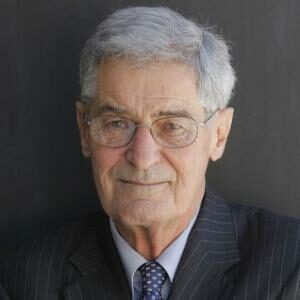Robert Lucas Jr. is an American economist who won the Nobel Prize in Economic Sciences for developing the ‘Theory of Rational Expectations.’ He demonstrated how individuals make economic decisions based on their prior experiences, disregarding the outcomes predicted by national agencies based on their monetary and fiscal policies. He even questioned the macroeconomic policies of eminent economists such as John Maynard Keynes, as well as government intervention in domestic affairs in order to achieve the desired results. According to the ‘Philips curve,’ a government can reduce unemployment by inflating the economy. It increased wages, sending a signal to the unemployed that they would receive generous wages if they could find work. This results in a decrease in unemployment, which Lucas argued was self-defeating, as the unemployed could not be duped repeatedly. He also stated that inflation would eventually result in increased unemployment, resulting in a rise in the country’s unemployment rate. He contended that, rather than resolving problems, fiscal policies that attempt to manipulate the economy by instilling false expectations may exacerbate them. Between 1970 and 2000, he revolutionized macroeconomic theory through his research, which helped other economists such as Edward Prescott and Finn Kydland win the 2004 Nobel Prize.
Childhood & Adolescence
Robert Emerson Lucas Jr. was born on September 15, 1937, in Yakima, Washington, United States of America. Robert Emerson Lucas is the eldest son of Robert Emerson Lucas and Jane Templeton.
Jenepher is his younger sister, and Peter and Daniel are his younger brothers. His parents owned a small restaurant in Yakima called ‘The Lucas Ice Creamery,’ which was forced to close in 1937 and 1938 due to the economic recession. His parents relocated to Seattle during World War II, where his father found work as a welder for a commercial refrigeration company and his mother resumed her career as a fashion artist.
He enrolled in the ‘Seattle Public Schools’ and graduated in 1955 from ‘Roosevelt High School.’He excelled in mathematics and science subjects and was expected to pursue a career in engineering after enrolling at Seattle’s ‘University of Washington.’
At seventeen, his dreams of becoming an engineer were dashed when MIT declined to offer him a scholarship. He was offered one by the ‘University of Chicago,’ but it did not have an engineering school. He attended the ‘University of Chicago’ and majored in mathematics.
He quickly lost interest in mathematics, as the majority of the topics covered in the course were ones he had already learned in high school. He was not willing to major in Physics, as was customary for good students at ‘Chicago University’ in those days. Rather than that, he majored in Ancient History and graduated in 1959 with a bachelor’s degree.
He was awarded a ‘Woodraw Wilson Doctoral Fellowship’ and enrolled in the ‘University of California’ at Berkeley’s graduate program in history. He switched to Economic History after becoming interested in the economic life that continued in the aftermath of political upheavals. He desired to study economics further but was unable to obtain financial support from Berkeley’s ‘Economics Department.’
He returned to Chicago and enrolled in a few undergraduate and graduate courses to acclimate to the upcoming fall graduate course in Economics. He earned his Ph.D in economics from the ‘University of Chicago’ in 1964.
Career of Robert
Robert Lucas Jr. taught at Carnegie Mellon University’s ‘Graduate School of Industrial Administration,’ now known as the ‘Tepper School of Business,’ from 1963 to 1975.
In 1972, he developed a model that included future price and quantity expectations. He also explained the relationship between output and inflation previously depicted by the ‘Philips curve.’
In 1975, he returned to the ‘University of Chicago’ as an economics professor. He developed the ‘Lucas critique’ for economic policymaking in 1976. The critique questioned macroeconomic theory’s foundations and provided an explanation for the relationship between inflation and unemployment.
In 1980, he was named ‘Emeritus John Dewey Distinguished Service Professor of Economics’.He developed a ‘theory of supply,’ which posits that unsystematic monetary policy can fool people. He also co-developed the ‘Uzawa-Lucas Model’ with Hirofumi Uzawa, which explains how humans accumulate capital, and the ‘Lucas Paradox,’ which explains why capital flows from developed to developing countries are so small.
He predicted, along with Paul Romer, the birth of ‘endogenous growth theory’ and increased economic growth research in the late 1980s and 1990s. He also contributed to behavioral economics by elucidating the deviations from the ‘law of one price’ caused by investors’ irrationality. In 1997, he was elected President of the ‘Econometric Society,’ and in 2002, he was elected President of the ‘American Economic Association.’In 2003, he declared that the decades-old problem of depression prevention had been solved.
Significant Works of Robert
In 1981, Robert Lucas Jr. published ‘Studies in Business-Cycle Theory,’ a collection of his research papers. In 1987, he published a book titled ‘Models of Business’ that provided an overview of ‘economic theory.Additionally, he edited and co-edited several economics journals and compiled his writings into the book’Lectures on Economic Growth’ in 2001.
Awards and Accomplishments
In 1975, Robert Lucas Jr. was elected a ‘Fellow of the Econometric Society.’In 1980, he was elected to the ‘American Academy of Arts and Sciences.’Lucas was elected to the ‘National Academy of Sciences’ in 1981. In 1995, he was awarded the Nobel Prize in Economics.
Personal History and Legacies
Robert Lucas Jr. married Rita Cohen, a University of Chicago undergraduate student, in August 1959 and divorced her in 1982. In 1988, he divorced her. He is the father of two sons, Stephen and Joseph, from his marriage. He married Nancy Stokey in 1982 and collaborated with her on several papers on public finance, growth, and monetary theory.
Estimated Net Worth
Robert Lucas Jr.’s net worth or earnings are estimated to be between $1 million and $10 million. He has amassed such wealth through his primary career as an economist.
Trivia
Robert Lucas Jr. is widely regarded as the century’s greatest macroeconomist.


